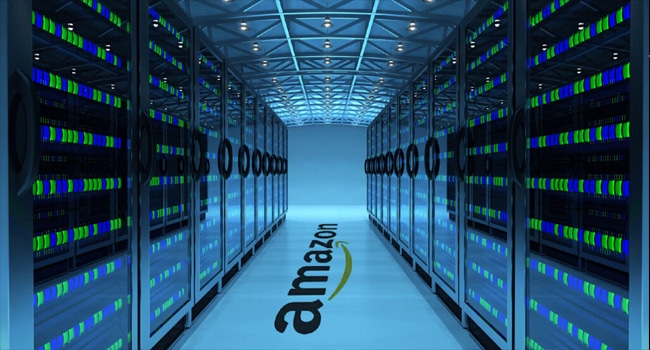Amazon Web Services (AWS) is a leading provider in the cloud computing space, offering a wide range of services that enable businesses to scale and innovate. Among its extensive suite of offerings is Amazon Cloud VPS (Virtual Private Server), more commonly known as Amazon EC2 (Elastic Compute Cloud). This article will delve into the key aspects of Amazon Cloud VPS, exploring its features, benefits, use cases, and how it compares to traditional VPS solutions.

What is Amazon Cloud VPS?
Amazon Cloud VPS, or Amazon EC2, is a web service that provides resizable compute capacity in the cloud. It is designed to make web-scale cloud computing easier for developers. Amazon EC2 allows users to rent virtual servers, known as instances, on which they can run their applications. These instances can be scaled up or down depending on the demand, offering flexibility and cost efficiency.
Key Features of Amazon Cloud VPS
- Elasticity and Scalability: One of the standout features of Amazon EC2 is its ability to automatically scale up or down based on demand. This elasticity ensures that users have the right amount of resources to handle their workloads efficiently.
- Diverse Instance Types: Amazon EC2 offers a variety of instance types tailored for different use cases, including compute-optimized, memory-optimized, storage-optimized, and GPU instances. This diversity allows users to choose the most suitable instance type for their specific needs.
- Security: Amazon EC2 provides robust security features, including Virtual Private Clouds (VPCs), security groups, and IAM roles. These features help users secure their instances and control access to their resources.
- Flexibility: Users can choose from a variety of operating systems, including various distributions of Linux and Windows. Additionally, they can bring their own licenses (BYOL) for software and applications.
- Cost Management: AWS offers several pricing options, including On-Demand, Reserved Instances, and Spot Instances, allowing users to optimize costs based on their usage patterns. Tools like AWS Cost Explorer help users monitor and manage their spending.
Benefits of Using Amazon Cloud VPS
- Reduced Capital Expenditure: By using Amazon EC2, businesses can avoid the upfront costs associated with purchasing and maintaining physical servers. This shift from capital expenditure (CapEx) to operational expenditure (OpEx) can significantly improve cash flow.
- High Availability and Reliability: AWS operates in multiple geographic regions and availability zones, ensuring high availability and fault tolerance. This infrastructure is designed to provide businesses with reliable service and minimal downtime.
- Global Reach: With data centers located around the world, AWS enables businesses to deploy their applications closer to their end-users, reducing latency and improving performance.
- Rapid Provisioning: Users can quickly launch new instances or scale existing ones in minutes, enabling rapid response to changing business needs.
- Comprehensive Ecosystem: AWS offers a vast ecosystem of services that integrate seamlessly with EC2, including databases (RDS, DynamoDB), storage (S3, EBS), machine learning (SageMaker), and more. This integration simplifies the process of building and managing complex applications.
Use Cases for Amazon Cloud VPS
- Web Hosting: Amazon EC2 is ideal for hosting websites and web applications, providing the flexibility to handle varying levels of traffic and ensuring high availability.
- Big Data and Analytics: EC2 can be used to process large datasets using tools like Hadoop, Spark, and Presto, offering the computational power needed for data-intensive tasks.
- Machine Learning: AWS provides specialized EC2 instances with GPUs and TPUs for training and deploying machine learning models, making it a preferred choice for AI-driven applications.
- Disaster Recovery: Businesses can use EC2 to set up disaster recovery solutions, ensuring business continuity in the event of a failure or disaster.
- Development and Testing: Developers can use EC2 instances to create development and testing environments that mimic production environments, facilitating the development process.
Amazon Cloud VPS vs. Traditional VPS
While both Amazon Cloud VPS and traditional VPS solutions offer virtualized computing resources, there are significant differences:
- Scalability: Traditional VPS solutions typically have fixed resources, whereas Amazon EC2 allows for dynamic scaling based on demand.
- Pricing: Traditional VPS usually involves a fixed monthly fee, while EC2 offers various pricing models, including pay-as-you-go, which can be more cost-effective for fluctuating workloads.
- Global Reach: AWS’s global infrastructure enables businesses to deploy applications closer to their users, which is often not possible with traditional VPS providers.
- Ecosystem: The comprehensive suite of services available in AWS’s ecosystem provides additional value that traditional VPS providers may not offer.
Conclusion
Amazon Cloud VPS, through Amazon EC2, provides a powerful, flexible, and cost-effective solution for businesses looking to leverage cloud computing. Its scalability, diverse instance types, robust security, and global reach make it a preferred choice for a wide range of applications. As businesses continue to embrace digital transformation, Amazon EC2 will play a crucial role in enabling innovation and driving growth. Whether you are a startup or an established enterprise, Amazon Cloud VPS offers the tools and infrastructure needed to succeed in the digital age.